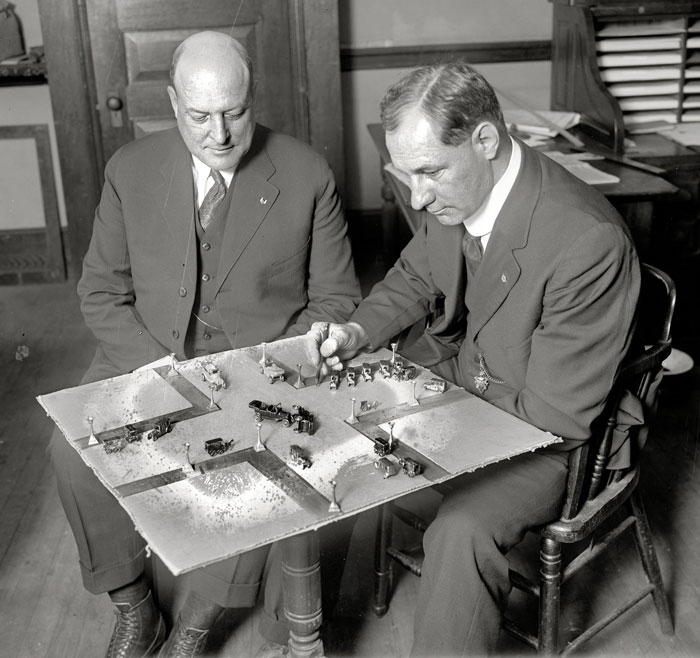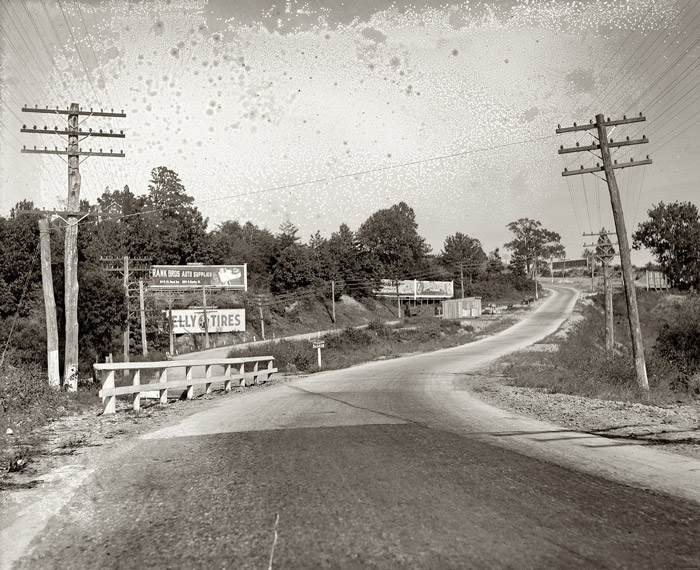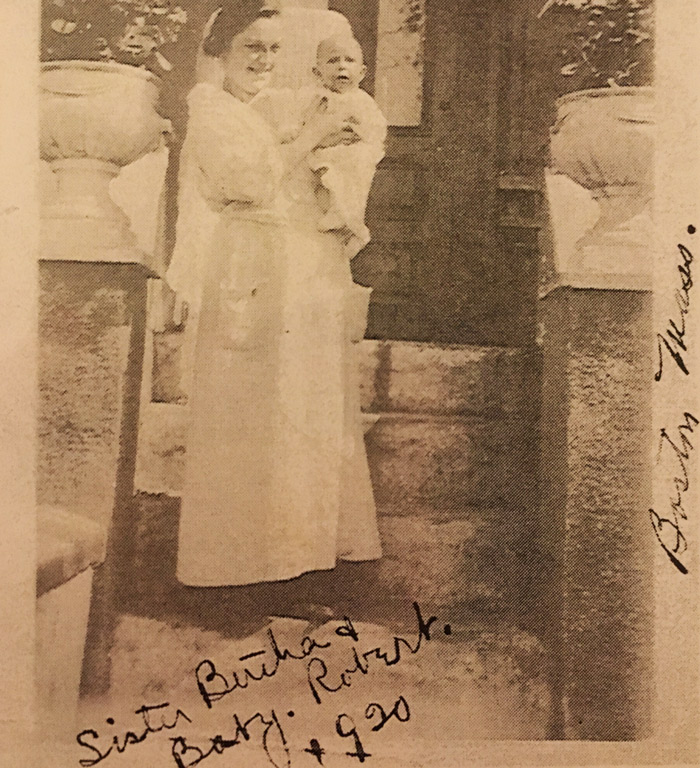Hole in the Clouds
Apr 12, 2011
 In approximately 1920, Washington, D.C., police officer Otto G. Hauschild, at right, came up with the idea of using toy cars to re-enact motor vehicle accidents in traffic court. Here, he and fellow officer George H. Scriven are preparing a case.
In approximately 1920, Washington, D.C., police officer Otto G. Hauschild, at right, came up with the idea of using toy cars to re-enact motor vehicle accidents in traffic court. Here, he and fellow officer George H. Scriven are preparing a case.
Hauschild eventually went to law school and became an authority on the investigation of traffic accidents.
Washington, D.C.
Otto G. Hauschild
George H. Scriven
police
board game
traffic court
1920
Jun 3, 2012
 In 1920, this was Dead Man's Curve on the main highway connecting Washington and Baltimore. The small sign in the middle of the photo, just beyond the wooden guard rail, reads "Danger."
In 1920, this was Dead Man's Curve on the main highway connecting Washington and Baltimore. The small sign in the middle of the photo, just beyond the wooden guard rail, reads "Danger."
Route 1 was rerouted in the 1940s to avoid the danger.
Washington
streetscape
Baltimore
1920
signage
Route 1
highway
(Image credit: National Photo Co.)
Feb 22, 2017
 Another very old family picture: Sister Bertha is my mother's mother, my Grandma Buddy. Baby Robert is my Uncle Bob, my mother's much older brother, born in 1919.
Another very old family picture: Sister Bertha is my mother's mother, my Grandma Buddy. Baby Robert is my Uncle Bob, my mother's much older brother, born in 1919.
Like all my other grandparents, Buddy was an immigrant, brought to the United States from Russia as a small child, five years old, around the turn of the twentieth century. Her father had been a coppersmith in Russia, but I have heard two very different stories about what exactly that meant: either he fixed people's pots and pans, or he assembled a copper-tubed, um, still and made vodka to sell to soldiers in the czar's army.
Whatever, he fled Russia in a hurry after a pogrom that had led to the death of one of his children. The family had twin baby boys at the time, and as was the custom, one of the twins was sent to live with a wet nurse nearby. When the pogrom struck, the wet nurse, who was not Jewish, apparently was forced to turn over the Jewish baby in her charge, and the family had reason to believe that he was killed.
Leaving his wife and children behind, my great-grandfather left immediately for America, where he got work on the railroad, an unusual career path for an immigrant Jew. When he sent for his wife and children a few years later, they settled in a small railroad town in New Jersey or Pennsylvania. My great-grandfather became a train engineer, I'm told–but how? Isn't that the sort of job where you'd have to speak and read and write English? The family was given a pass to ride the railroad wherever they wanted to go for free; one time, they rode all the way to Portland, Oregon, where they visited a relative. Who?
When the older children in the family were approaching marriageable age, the family moved to New York City, in hopes of finding Jewish spouses. Buddy went to work in a five and dime store in Brooklyn, where she met my grandfather–but that's a story for another morning.
Boston
1920
Grandma Buddy
family history
Uncle Bob
 In approximately 1920, Washington, D.C., police officer Otto G. Hauschild, at right, came up with the idea of using toy cars to re-enact motor vehicle accidents in traffic court. Here, he and fellow officer George H. Scriven are preparing a case.
In approximately 1920, Washington, D.C., police officer Otto G. Hauschild, at right, came up with the idea of using toy cars to re-enact motor vehicle accidents in traffic court. Here, he and fellow officer George H. Scriven are preparing a case.
